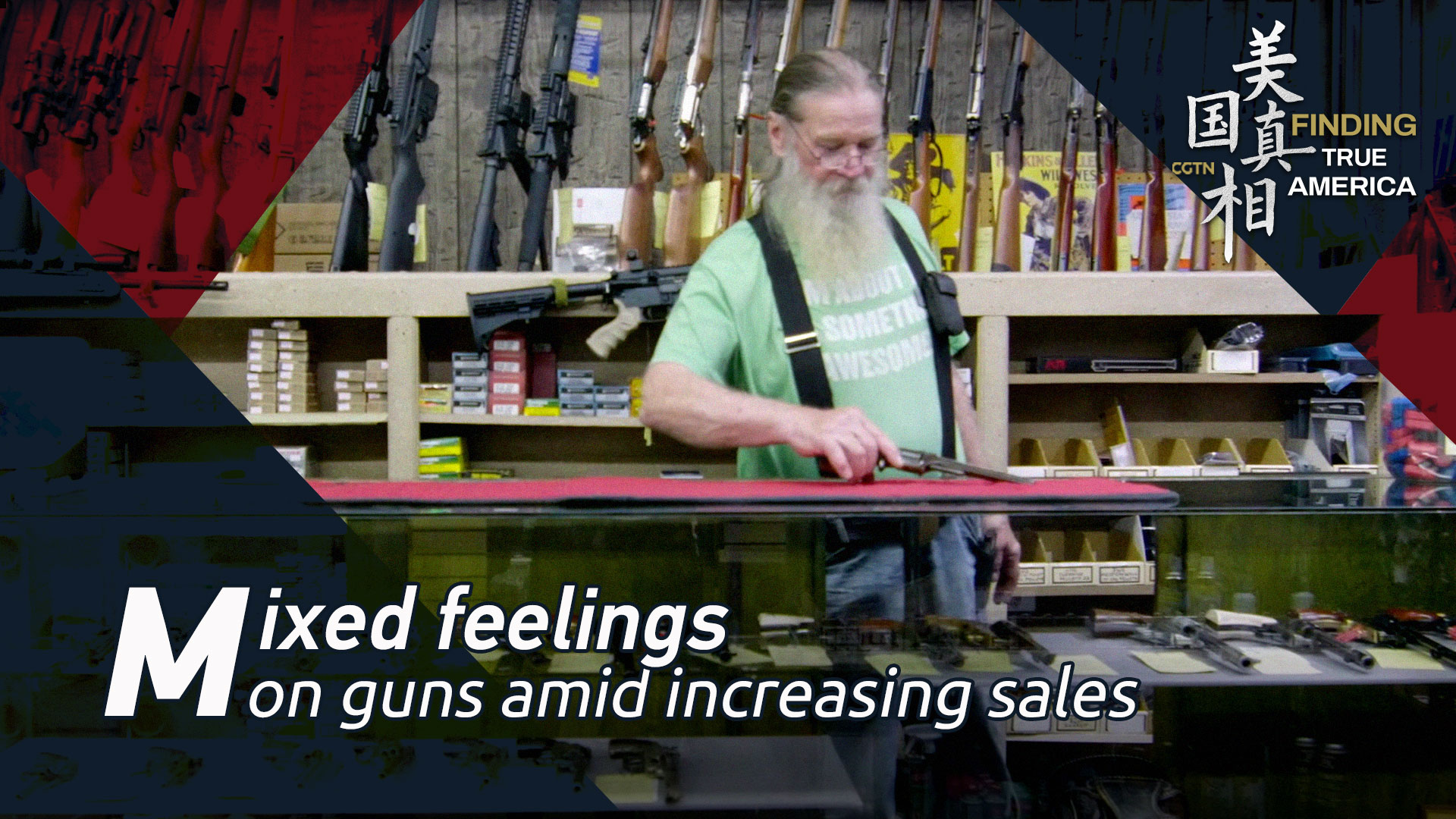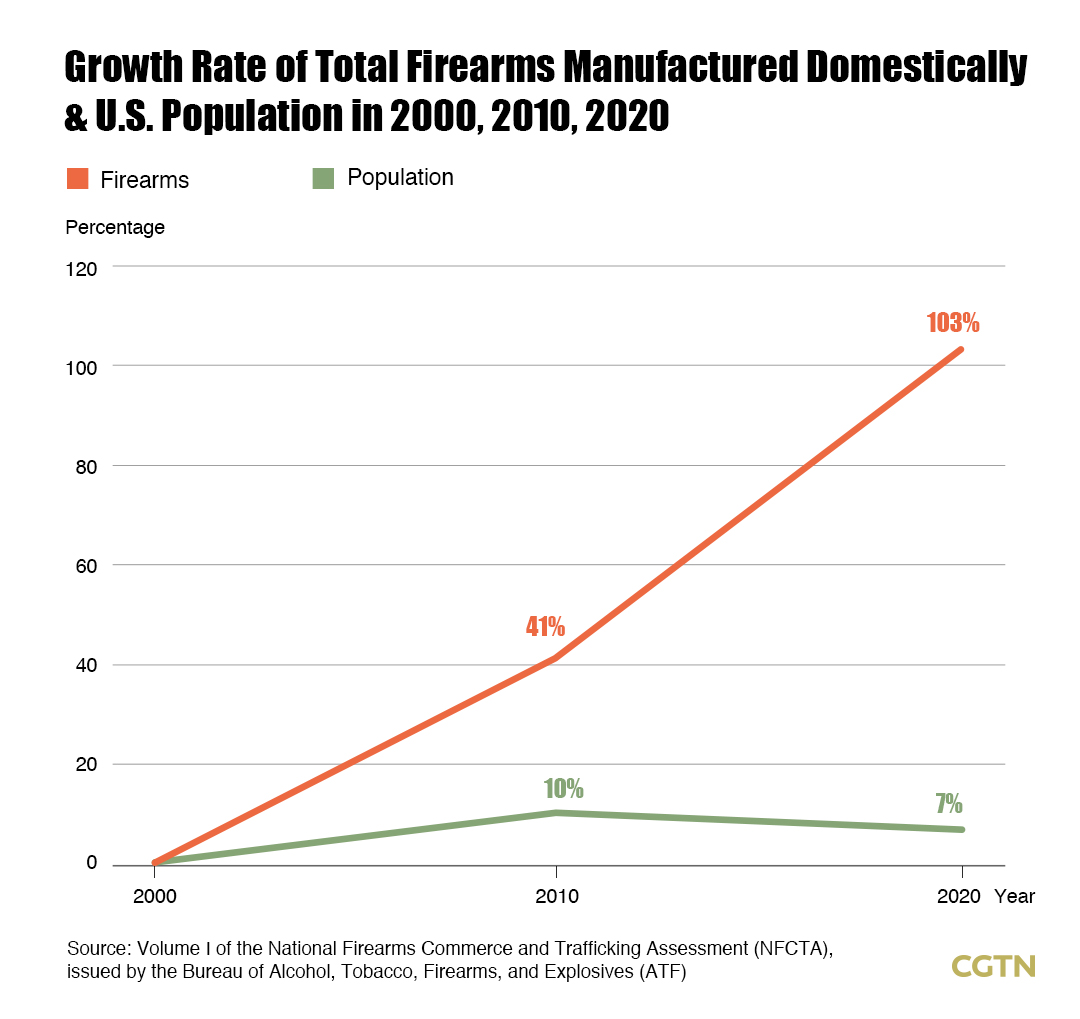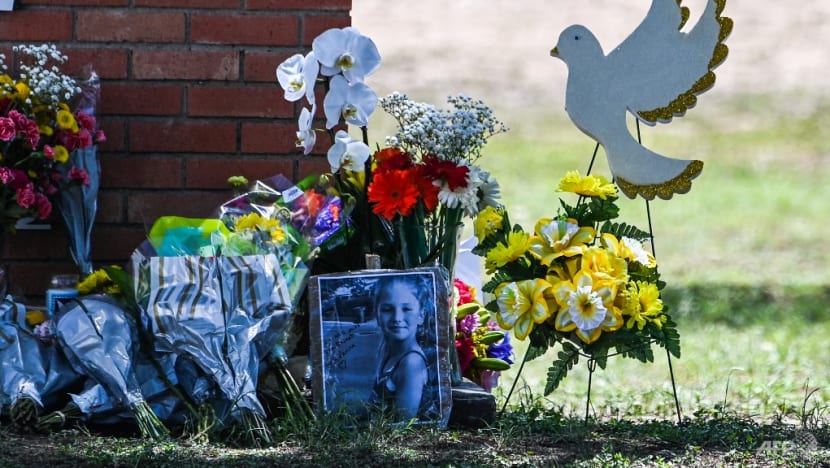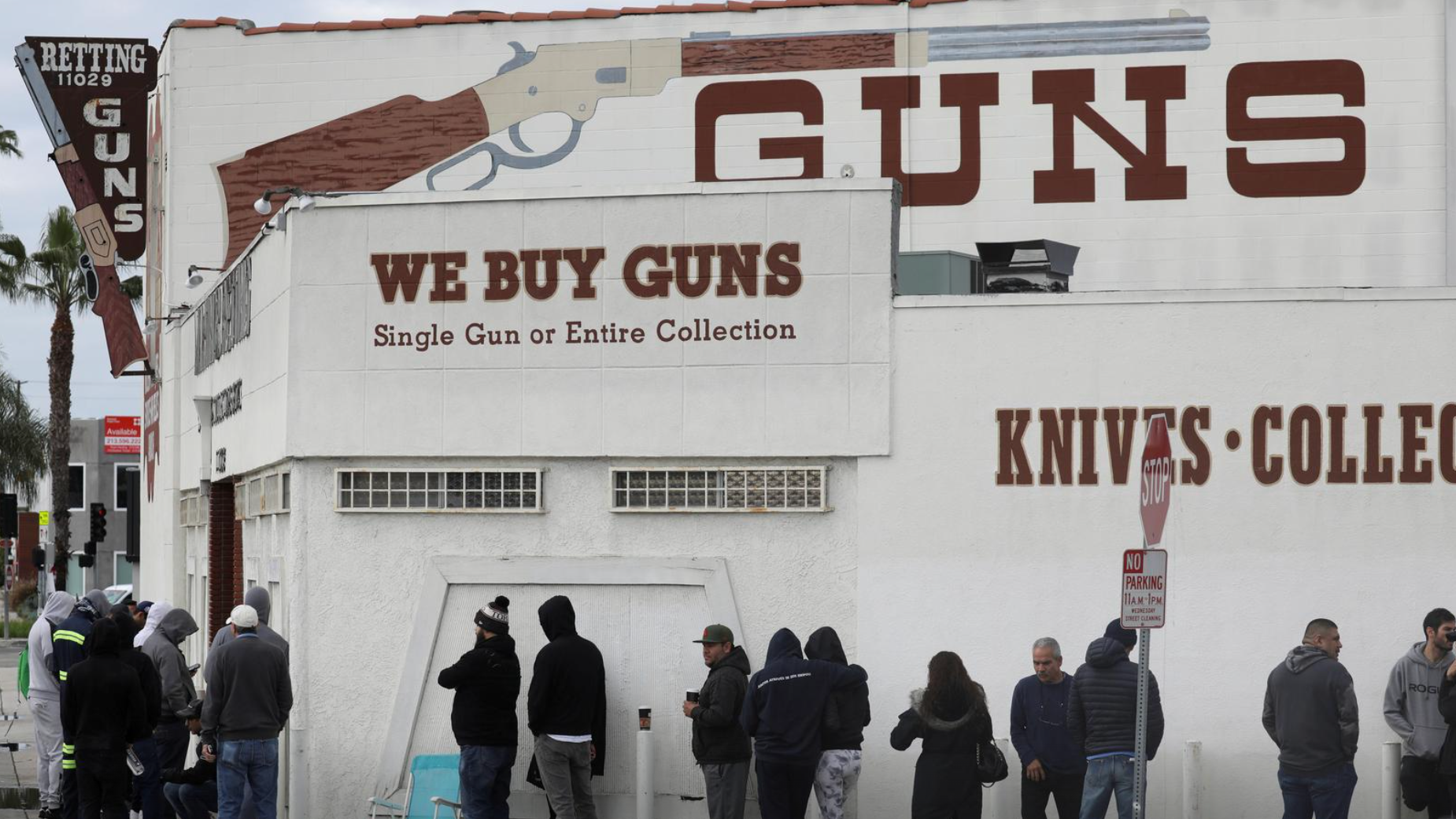04:59

Willie spent most of his life working as a machinist before becoming a gunsmith. He usually gets up at 4 a.m., hops on his motorcycle and rides to the gun shop he runs in California.
"I deal mainly in early guns, pre-1900, although I can work on modern guns of all kinds," said the 70-year-old. "I enjoy what I do, as a piece of history."
Gun-making and ownership have long been a part of U.S. history. Guns were vital in the revolutionary war and westward expansion. And that legacy continues. Many Americans continue to buy guns for self-protection and home defense, as well as hunting and sports.
"Throughout the day, people will come in to look at guns or buy a gun," said Willie. "A lot of our customers are recreational shooters, sport shooters, a lot of hunting people."
Willie's business was one of the more than 52,700 gun dealers operating across the country in 2020, licensed by the Bureau of Alcohol, Tobacco, Firearms and Explosives (ATF).
During the past two decades (2000-2020), the total U.S. population grew by 18 percent, while the annual output of firearms increased by 187 percent to over 11.3 million in 2020, according to an ATF report, issued days after the Buffalo supermarket shooting.

Americans bought 18.9 million guns in 2021, following a record high in 2020 when 21.8 million people purchased firearms. Among them, 30 percent bought guns for the first time, according to the National Shooting Sports Foundation (NSSF).
In 2020, more than 39.7 million background checks were conducted by the FBI’s Criminal Background Check System (NICS). Although 93 percent of American voters support requiring background checks on all gun sales, only 21 states and Washington, D.C. have enacted laws that require background checks for all handgun sales, according to Everytown for Gun Safety Support Fund, an organization working on reducing gun violence. Twenty-nine states have no such requirement.

A gun store at a strip mall in Oceanside, California, U.S., April 12, 2021. /Reuters
A gun store at a strip mall in Oceanside, California, U.S., April 12, 2021. /Reuters
People buy more guns when sensing security risks
In the past, increases in gun purchases had normally been linked with major hunting seasons and the year-end holiday, but the trend has shifted in recent years.
The number of gun purchases has increasingly corresponded with the political and social unrest that Americans have experienced. When bullets fly, people tend to buy more guns, driven by a sense of growing insecurity. Background checks surged in March, June, July and November in 2020, coinciding with the pandemic lockdown, social unrest fueled by George Floyd's death and the presidential election, data from the NICS shows.
Seeking protection against crime has become a dominant reason for people to own guns, as they perceive increasing security threats in their communities. A 2021 Gallup survey shows that nearly 90 percent of gun owners say they have bought weapons to protect themselves against crime.
Joe Bartozzi, NSSF President and CEO, said soaring gun sales indicate "an increasing need for firearm education," and "a community of firearm owners all have a responsibility to use, transport and store firearms safely."
Approximately five million children have been exposed to household firearms for the first time since 2019, a study from Northeastern University shows. Although 70 percent of parents reported that adolescents could not access firearms at home, over one third of children in these households reported being able to obtain the firearm from home in a very short period of time – usually less than one hour.
Statistics indicate a lack of gun safety at home plays a big role in shooting incidents. Between 70 to 90 percent of guns, used by shooters under the age of 18 perpetrating suicides, unintentional shootings and school shootings, are obtained from homes, according to Giffords Law Center, a gun violence prevention organization.
For some Americans, owning guns provides them with a sense of security. But questions remain as to whether it makes the communities even more dangerous.
"There's a misconception in this country that bringing a firearm into the home can make it safer, when you are increasing the likelihood that you and your family will be shot," Christian Heyne, Vice President of Policy at the Brady Campaign to Prevent Gun Violence, told CBS MoneyWatch.
A prolonged debate on gun control
Americans bear the cost of a higher level of gun violence compared with peer industrial nations. In 2020, guns became the leading cause of death of kids and teenagers, overtaking motor vehicle crashes, data from the Centers for Disease Control and Prevention shows.
Recent deadly mass shootings, including one at Robb Elementary School in Texas, have sparked, once again, heated discussions on gun control.

A photo of Makenna Lee Elrod, a victim of the shooting, is seen on a makeshift memorial in front of Robb Elementary School in Uvalde, Texas, May 25, 2022. /AFP
A photo of Makenna Lee Elrod, a victim of the shooting, is seen on a makeshift memorial in front of Robb Elementary School in Uvalde, Texas, May 25, 2022. /AFP
A majority of U.S. adults say it's more important to control gun violence than to protect gun rights, the lates NPR/PBS NewsHour/Marist National Poll shows. The 59-to-35 percent margin is the widest in favor of controlling gun violence recorded in a decade in the Marist poll. But still, the poll finds a sharp partisan divide – 92 percent of Democrats say it's more important to control gun violence than over protecting gun rights, while only 20 percent of Republicans share the same idea.
"We simply have to figure out a way, in a complex democracy, to figure out how to balance freedoms, which we all love…if we cannot balance them with responsibility," said Ryan Busse, a senior adviser at Giffords.
In fact, gun control efforts are inconsistent in different states and often dimmed by partisan divides. In California, gun owners need to pass a test to get a Handgun Safety Certificate, while in some states no restrictions on private gun sales exist. In March 2022, Ohio passed a bill allowing residents over 21 to carry firearms without a permit, to become the 23rd U.S. state with permitless carry gun laws. There has been a steady loosening of rules in Texas, where 21-year-olds can carry a handgun in public without training or a permit; and where an adult can buy a rifle with little hassle.

People wait in line outside to buy supplies at a gun store in Culver City, California, U.S., March 15, 2020. /Reuters
People wait in line outside to buy supplies at a gun store in Culver City, California, U.S., March 15, 2020. /Reuters
Salvador Ramos bought two AR-15 rifles legally as soon as he turned 18. The young man shot his grandmother before heading to Robb Elementary School in Uvalde to kill 21 people, including 19 young children.
Over the past two decades, carrying a handgun has also become more common among teenagers. From 2015 to 2019, the overall handgun carriage among teens aged 12-18 increased by 41 percent compared with the period between 2002 and 2006, a study published in the journal Pediatrics in 2022 shows.
"Purchasing a firearm is one step to protecting your family, but it also means safely storing your gun away from children, so they don’t hurt themselves," said Philip Smith, president and founder of the National African American Gun Association.
"I've taught my kids how to shoot, as far as that goes, firearm safety and shooting," said Willie. "I'd like to see the younger generation learn safety in the right way."
As Americans enjoy wide access to guns, addressing gun violence means improvements have to be made on regulation of gun sales and ownership. Experts from the Center for Gun Violence Solutions at Johns Hopkins University have found that restrictions on firearm purchases and child access protection laws could reduce the likelihood of gun deaths.
"Laws that temporarily bar individuals convicted of violent misdemeanors or those who are under restraining orders for domestic violence (from purchasing or possessing firearms), we found, reduce homicides," said Daniel W. Webster, co-director of the Center for Gun Violence Solutions. He adds that these laws could "interrupt planned mass shootings, political violence and suicide attempts."
Cassandra Crifasi, deputy director of the Johns Hopkins Center for Gun Violence Prevention and Policy, saw the gun policy as "mostly political among politicians."
"The narrative in our country is that there's a great divide by gun ownership or political party on solutions to gun violence, and that's why we can't get anything done," she said.

